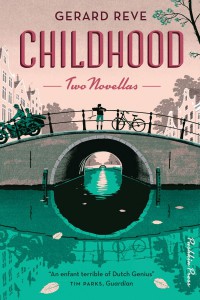To the Letter by Tomasz Różycki, translated from the Polish by Mira Rosenthal, Archipelago Books, 2024
“It’s my word, my letters against your minutes,” writes Tomasz Różycki in To the Letter, the most recent English-language volume from the distinguished Polish poet. The line concludes the poem “Shadow,” in which the speaker—himself already “gone, no longer”—addresses an equally enigmatic audience: “From the shadows / perhaps you’re watching me pass through the gate.” Such confrontations between experiential time and textual consciousness, individual mortality and the ghosts of cultural consciousness, reverberate throughout this collection. The speaking voice of these poems is always aware of itself as text—a part of history inhabiting a living reader.
The book’s macrocosm integrates Jungian insights about how the shadows of history intermingle with the personal and cultural shadows of the living. In literature, these exchanges are facilitated through the act of reading, and To the Letter presents various perspectives on—and within—this process, incorporating allegorical considerations of the reader-writer, as well as direct addresses to the mutable beloved facing the pages. In collaborative, interdependent structures (numerical sequencing, narrative fragments, various configurations of speaker and addressee, and dream-like recurrences of theme, image, and setting), Różycki displays the dynamics between unconscious and conscious, self and other, individual and culture, all captured in a fine translation by Mira Rosenthal. Her English iterations fully relay the poems’ accessibility, music, and humor—as well as the ways they integrate into surprising valences with creativity, love, and interbeing. Within them, one identifies an existentially grounded, metaphysically nimble soul, intrinsically defying the authoritarian project that empowers itself by convincing people that they are drastically oversimplified, reified versions of themselves.
The central character in the collection is Lieutenant Anielewicz, who often appears in cameos. His unexpected arrivals, usually in a capacity of investigation or covert sabotage, befit the historical Mordechai Anielewicz, a leader of the Jewish resistance in the Warsaw ghetto. In using this character to stage ongoing psychological engagement with creativity, trauma, and finality, Różycki finds both literal and metaphorical affinities between the commander’s resistance against the Nazi genocide, and the poet’s evocations of the soul’s potentially destructive aspects. READ MORE…








